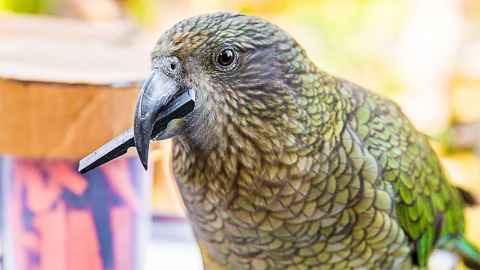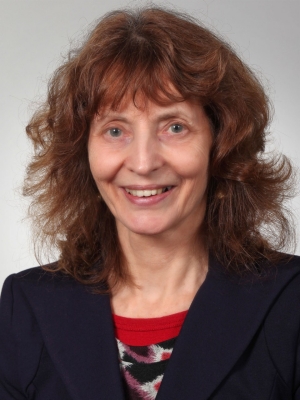An article about the people behind the scenes of Aotearoa’s response to the Covid-19 pandemic.
Shaun Hendy shares his experiences providing model-based data and recommendations to the government.
An article about the people behind the scenes of Aotearoa’s response to the Covid-19 pandemic.
Shaun Hendy shares his experiences providing model-based data and recommendations to the government.
4 March 2020. Source: InSCIde Scoop – the Faculty of Science, The University of Auckalnd

Publishing in Nature Communications, PhD candidate Amalia Bastos and Associate Professor Alex Taylor carried out an experiment to test New Zealand’s alpine parrots (Nestor notabilis) on their ability to make predictions using statistical, physical and social information in a similar way to a human. Read the full article…
The Australasian Region of the International Biometric Society is running a School Poster Competition for Year 9 & 10 Australian and NZ students. Entries close 10 November. More details »
|
||||||||||||

Congratulations to Associate Professor Maxine Pfannkuch of the University of Auckland for receiving a lifetime achievement award from the NZSA. Maxine has written many wonderful resources here for CensusAtSchool.
If you studied statistics at secondary school in the last quarter of a century, your learning was influenced by Maxine Pfannkuch of the Department of Statistics. Associate Professor Pfannkuch studies how people, mostly school students, draw statistical conclusions from data and from graphics, and looks for ways to teach them to do it better. Her work has led to many improvements to high-school statistics curricula here and overseas.
And Associate Professor Pfannkuch’s contribution has been recognised with a lifetime achievement award from the 68-year-old New Zealand Statistical Association (NZSA). The Campbell Award commemorates Professor James Towers Campbell (1906-1994), who was the first president of the NZSA. The award requires an “exceptional” publication record, and “prolonged and outstanding” contribution to statistical education as well as involvement in “major, innovative research projects that have direct relevance to New Zealand”.
Today is World Statistics Day!
Watch students at Kapiti College show how they use the inquiry cycle to make conclusions from data.
Today organisations, teachers and students from all over the world will be celebrating the role that data plays in our lives now and in the future.
Statistics New Zealand have launched a Level 3 time series resource to showcase how they analyze data, this presentation was well received at NZAMT 2015.
Other World Statistics Day classroom activities include a movie showing students how they can contribute to a data-driven future, and a poster explaining how statistics around the world are use to make decisions. These could be a great way to generate discussion about how we use statistics in the world outside school.
Also Anna Martin has produced a very addictive game to celebrate World Statistics day, what does your data look like?
Maths (and Stats!) week is on again from Monday August 10th until Friday August 14th 2015.
NZAMT have lots of great resources to help you make the most of a special week. If you have any Statistics resources you use for Maths Week and would like to share with others, CAS can help you do that: please email censusatschoolnz@gmail.com
 One contributor to the CensusAtSchool/TataurangaKiTe Kura project is Dr Ian Christensen, who has been helping us to formulate the questionnaire in te reo Māori and also adapt CAS resources for the Māori-language pāngarau (maths) classroom. (You can search for those resources here).
One contributor to the CensusAtSchool/TataurangaKiTe Kura project is Dr Ian Christensen, who has been helping us to formulate the questionnaire in te reo Māori and also adapt CAS resources for the Māori-language pāngarau (maths) classroom. (You can search for those resources here).
Over the years, Ian has contributed to the development of the maths vocabulary and resources used in kura kaupapa (Māori-language schools). He works at a Māori language education and research organisation called He Kupenga Hao i te Reo, based in Palmerston North. He Kupenga Hao i te Reo has just published for the Ministry of Education a level 3 statistics textbook and accompanying teacher handbook called Te Tauanga (tauanga is the Māori word for statistics), which focuses on the statistics and probability strand of the pāngarau curriculum. Further books focusing on statistics at levels 4 and 5 of the curriculum will follow later in 2015 and early 2016.
We’re delighted to see that Ian has made good use of CensusAtSchool questions and data, and we are hoping that this will encourage more reo-Māori classrooms to take part in the Māori-language version of the census and accompanying resources. Thanks Ian!
Copies of the textbook can be ordered free of charge.
How about getting a Stats project running with your classes in the build up to Christmas!
The International Year of Statistics (Statistics2013) is a worldwide celebration and recognition of the contributions of statistical science.
Through the combined energies of organizations worldwide, Statistics2013 will promote the importance of statistics to the broader scientific community, business and government data users, the media, policy makers, employers, students, and the general public.
The goals of Statistics2013 include:
The US Bureau of Labour has released this optimistic statement on job prospects for statisticians:
Employment of statisticians is projected to grow 14 percent from 2010 to 2020, about as fast as the average for all occupations. Growth will result from more widespread use of statistical analysis to make informed decisions. In addition, the large increase in available data from the Internet will open up new areas for analysis.
Government agencies will employ more statisticians to improve the quality of the data available for policy analysis. This occupation will also see growth in research and development in the physical, engineering, and life sciences, where statisticians’ skills in designing tests and assessing results prove highly useful.
Statisticians will continue to be needed in the pharmaceutical industry. As pharmaceutical companies develop new treatments and medical technologies, biostatisticians will be needed to do research and conduct clinical trials. Research and testing are necessary to help companies obtain approval for their products from the Food and Drug Administration.
A large amount of data is generated from Internet searching. Businesses will need statisticians to organize, analyze, and sort through the data for commercial reasons.